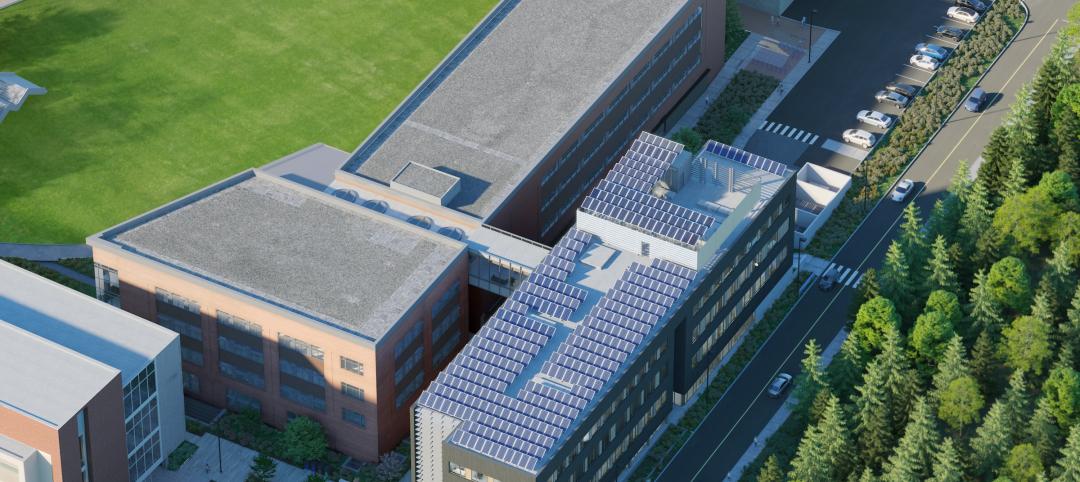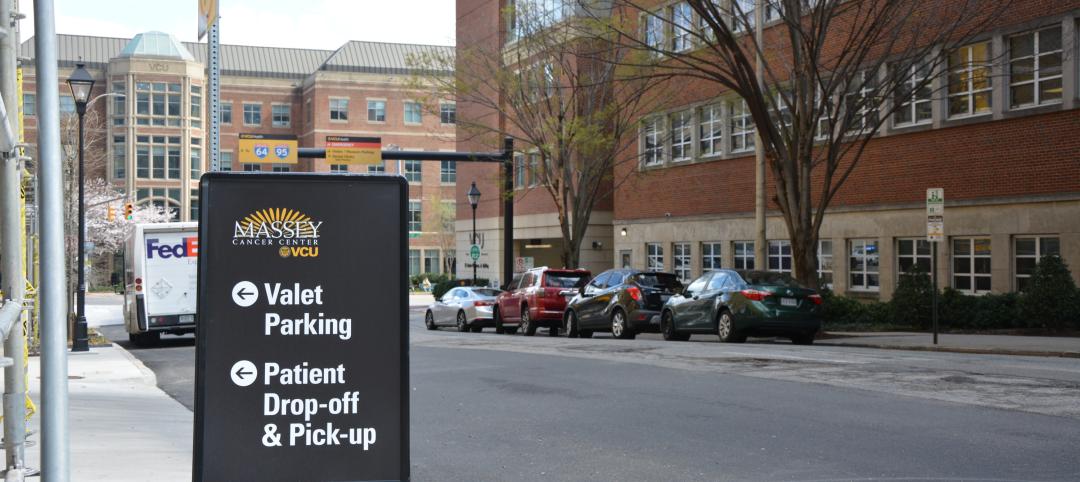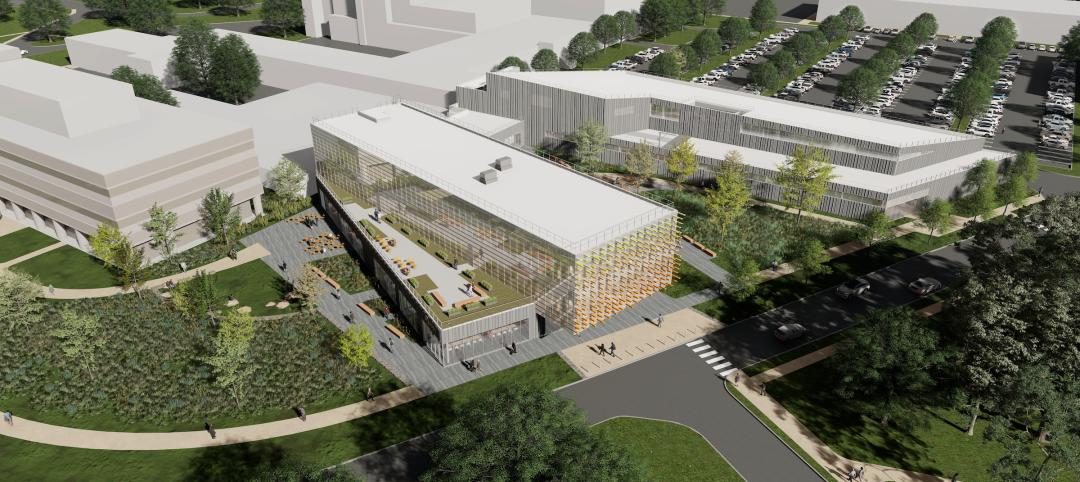The U.S. Department of Energy (DOE) and U.S. Department of Commerce announced selections for three Centers for Building Operations Excellence that will receive a total of $1.3 million to create and deploy programs aimed at training and expanding current and incoming building operators. The centers are part of the Obama administration’s Better Buildings Initiative, which is working to improve the energy efficiency of America’s commercial buildings 20 percent by 2020, with the potential to reduce American business’ energy bills by approximately $40 billion per year.
“Improving energy efficiency in business and manufacturing is critical for helping American businesses keep costs down and stay competitive in the global economy,” said Secretary of Energy Steven Chu. “The first step is ensuring we have well-trained buildings and facilities operators that know how to boost building performance and keep commercial facilities from wasting energy.”
The three Centers for Building Operations Excellence will work with universities, local community and technical colleges, trade associations, and the Energy Department’s national laboratories to build training programs that provide commercial building professionals with the critical skills they need to optimize building efficiency while reducing energy waste and saving money. The DOE and Commerce’s National Institute of Standards and Technologies’ Manufacturing Extension Partnership (NIST MEP) are jointly funding the centers.
“These federal grants are an example of the Obama administration’s commitment to investing in cutting-edge, job-creating technologies that save money and improve energy efficiency as part of an all-of-the above approach to American energy,” said Acting Commerce Secretary Rebecca Blank. “These centers will help ensure that American workers have the skills they need to remain globally competitive in a 21st century economy.”
The Centers for Building Operations Excellence, chosen through a competitive grants process, utilize multi-organization partnerships and support from local and state governments. The selected centers are:
· The Corporation for Manufacturing Excellence in California, partnering with Laney College and the International Union of Operating Engineers Local 39;
· Delaware Valley Industrial Resource Center in Pennsylvania, partnering with Pennsylvania State University, Pennsylvania College of Technology, and Drexel University; and
· New York State Department of Economic Development in New York, partnering with City University of New York and Rochester Institute of Technology.
The Better Buildings Initiative program creates opportunities for current and future facilities staff of all levels to obtain valuable skills that support a clean energy economy. Specifically, the funding announced today will help the three centers develop curricula and pilot training programs for building operators, managers, and energy service providers, focusing on building re-tuning, energy management, and building operations in commercial, industrial, and educational buildings. The training will outline steps building operators can take to reduce energy consumption, save money and drive continuous improvement in a broad range of commercial buildings.
To learn more about the Better Buildings Initiative, visit http://www1.eere.energy.gov/buildings/betterbuildings/. To learn more about NIST MEP’s work to support manufacturers nationwide, visit www.nist.gov/mep.
Related Stories
MFPRO+ News | Jun 3, 2024
New York’s office to residential conversion program draws interest from 64 owners
New York City’s Office Conversion Accelerator Program has been contacted by the owners of 64 commercial buildings interested in converting their properties to residential use.
MFPRO+ News | Jun 3, 2024
Seattle mayor wants to scale back energy code to spur more housing construction
Seattle’s mayor recently proposed that the city scale back a scheduled revamping of its building energy code to help boost housing production. The proposal would halt an update to the city’s multifamily and commercial building energy code that is scheduled to take effect later this year.
Mass Timber | May 31, 2024
Mass timber a big part of Western Washington University’s net-zero ambitions
Western Washington University, in Bellingham, Wash., 90 miles from Seattle, is in the process of expanding its ABET-accredited programs for electrical engineering, computer engineering and science, and energy science. As part of that process, the university is building Kaiser Borsari Hall, the 54,000-sf new home for those academic disciplines that will include teaching labs, research labs, classrooms, collaborative spaces, and administrative offices.
Construction Costs | May 31, 2024
Despite challenges, 2024 construction material prices continue to stabilize
Gordian’s Q2 2024 Quarterly Construction Cost Insights Report indicates that supply chain issues notwithstanding, many commodities are exhibiting price normalization.
University Buildings | May 30, 2024
Washington University School of Medicine opens one of the world’s largest neuroscience research buildings
In St. Louis’ Cortex Innovation District, Washington University School of Medicine recently opened its new Jeffrey T. Fort Neuroscience Research Building. Designed by CannonDesign and Perkins&Will, the 11-story, 609,000-sf facility is one of the largest neuroscience buildings in the world.
MFPRO+ New Projects | May 29, 2024
Two San Francisco multifamily high rises install onsite water recycling systems
Two high-rise apartment buildings in San Francisco have installed onsite water recycling systems that will reuse a total of 3.9 million gallons of wastewater annually. The recycled water will be used for toilet flushing, cooling towers, and landscape irrigation to significantly reduce water usage in both buildings.
Healthcare Facilities | May 28, 2024
Healthcare design: How to improve the parking experience for patients and families
Parking is likely a patient’s—and their families—first and last touch with a healthcare facility. As such, the arrival and departure parking experience can have a profound impact on their experience with the healthcare facility, writes Beth Bryan, PE, PTOE, PTP, STP2, Principal, Project Manager, Walter P Moore.
MFPRO+ News | May 28, 2024
ENERGY STAR NextGen Certification for New Homes and Apartments launched
The U.S. Environmental Protection Agency recently launched ENERGY STAR NextGen Certified Homes and Apartments, a voluntary certification program for new residential buildings. The program will increase national energy and emissions savings by accelerating the building industry’s adoption of advanced, energy-efficient technologies, according to an EPA news release.
Women in Design+Construction | May 28, 2024
Commerce Department launches Million Women in Construction Community Pledge
The U.S. Department of Commerce launched its Million Women in Construction Community Pledge this month to boost the ranks of women in construction companies. Federal investments are creating a construction boom that is increasing job opportunities for construction and trade workers.
Laboratories | May 24, 2024
The Department of Energy breaks ground on the Princeton Plasma Innovation Center
In Princeton, N.J., the U.S. Department of Energy’s Princeton Plasma Physics Laboratory (PPPL) has broken ground on the Princeton Plasma Innovation Center (PPIC), a state-of-the-art office and laboratory building. Designed and constructed by SmithGroup, the $109.7 million facility will provide space for research supporting PPPL’s expanded mission into microelectronics, quantum sensors and devices, and sustainability sciences.

















